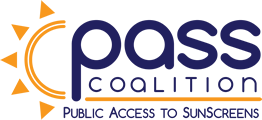Congressional Quarterly — Unlikely Alliance Presses for Sunscreen Approvals
CQ
Unlikely Alliance Presses for Sunscreen Approvals By Kate Ackley
March 19, 2013
An unusual coalition of skin cancer groups, dermatologists and companies that make sunscreens is prodding Congress and the Food and Drug Administration to speed up approvals for new ingredients to block the sun’s rays.
The Public Access to Sunscreens, or PASS, Coalition, includes such companies as BASF Corp., L’Oreal USA, Ashland Inc., DeWolf Chemical Inc. and Fitz Chem Corp., as well as the Skin Cancer Foundation, the Melanoma Research Foundation and the Prevent Cancer Foundation. Holland & Knight is managing the effort.
“We do not [usually] work with companies who manufacture sunscreen, so this is definitely unique,” said Shelby Moneer, a health educator for the Melanoma Research Foundation. “Our goal is certainly the same as everyone else’s in the coalition.”
The effort is built around getting FDA approval for sunscreen ingredients, or filters, that are already available in other countries but have not yet been cleared for sale in the U.S.
“If there is something better, and the FDA can help get those things approved so they’re available to the consumer, then we’re going to help to prevent those skin cancers,” Moneer said. “We’re not trying to make a bunch of money or do anything that’s downplaying what’s already out there. We’re just hoping to push a little.”
The coalition members say they want to establish a framework for approving the next generation of ultraviolet light active filters for sunscreens sold over the counter. The products have been in use for at least five years in foreign countries.
Al Pearce, senior marketing manager for personal care at the German chemical conglomerate BASF, said some companies like his have been waiting for the FDA for more than a decade.
“Not one ingredient has been approved,” he said, noting that some of the same filters have been in use in Europe since the 1990s.
“We’re approaching various members of Congress in the House and Senate, Republicans and Democrats, to make them aware of the situation,” Pearce said. “We want to work collaboratively with the FDA.”
The companies may be open to a user fee system similar to what’s in place for drug and medical-device evaluations, which Congress would have to authorize.
Already, Rep. John D. Dingell, D-Mich., a former chairman of the House Energy and Commerce Committee, has written to the FDA inquiring about the delay in time and extent applications, or TEAs.
“Skin cancer is becoming a public health epidemic in the United States,” Dingell wrote. “In addition to the public health risks posed by exposure to UV rays, there is a significant fiscal impact associated with the treatment of skin cancer.”
He cited National Cancer Institute estimates that direct costs associated with treating melanoma in 2010 were $2.36 billion.
Dingell noted in his letter that when the FDA established the TEA process, it indicated it would “strive to complete TEA evaluations in 90-180 days.”
“Many of the currently pending TEA applications represent a history of safe and effective use in a foreign country for as long as 15 years,” he said.
An email to Dingell’s office was not returned by press time.
Rich Gold, who heads the lobbying practice at Holland & Knight, said the PASS Coalition is doing online advertising, traditional lobbying and social-media outreach. The firm Hilltop Public Solutions is assisting with grass-tops outreach. The coalition also has commissioned polling research.
“The active ingredients in sunscreens are a generation behind those that are available in most of the rest of the world,” Gold said. “My daughter is at spring break in Mexico, using a new sunscreen ingredient that is more protective in more ways than what you can go buy at CVS.”
He added that the coalition wants to make sure the issue “doesn’t get lost on the floor in the midst of immigration reform and debt reduction.”
